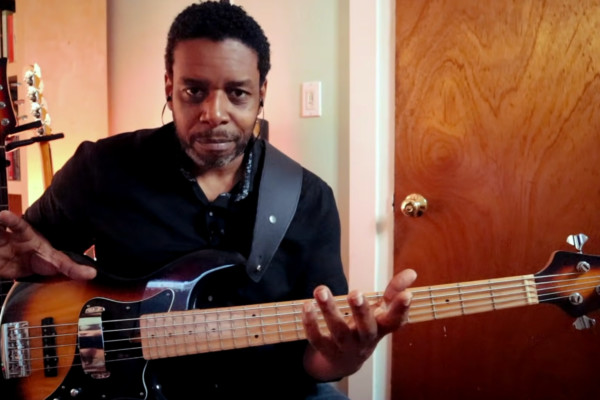Understanding and Getting Around Roadblocks in Musical Development
For this column, I wanted to answer a question I received on Facebook, as it is an important component in our musical development.
Q: I’ve been working on these exercises for six months now and I haven’t made any progress on them. I am very frustrated and do not know how to move forward. Do you have any suggestions? – Mike N.
A: Without knowing your exact level and actually seeing/hearing you do the exercises, it would be unwise to give a specific diagnosis for your individual situation. However, roadblocks like this can occur for anyone on their journey upward. When we find ourselves in a situation like the one you describe, it is very often due to one of three things:

1. We have chosen material that is too difficult for our advancement level
We need to be honest about our advancement level, which, despite our best efforts, can be tricky. Sometimes we don’t know what we don’t know. Although your current situation can happen to anyone, it is fairly common with ambitious students who are in the early years of learning.
Some situations are obvious. For instance, when a beginner chooses a virtuoso piece to work on. Such a student has overreached in a big way and the problem becomes obvious rather quickly.
When we overreach by just a small bit, however, we often don’t realize it until we have already spent a good deal of time and effort. A good teacher with a plan should be able to keep this sort of thing from happening too often, if they are working with a receptive student. If we are working on our own though, we must take responsibility for accurately assessing our level and choosing realistic goals. This is a tall order.
When we find ourselves in the situation you describe, we can either trudge on ahead hoping for progress or we could put the exercises away for a few months and come back to them later. In general, if a we have reached a point where we have put in time and effort and are now feeling frustrated, it is probably best to putting the offending material aside for a bit and come back to it later with a clear head.
2. We aren’t practicing the exercises/piece/lick, etc. correctly.
Perhaps we are:
- Practicing the passage/exercise too quickly too soon
- Not spending enough time on them each day
- Focusing on the wrong thing (left hand instead of right hand, bow hold rather than bow placement, etc.)
- Expecting progress too quickly, say after one day rather than one month (Although this doesn’t seem to be what you describe).
- On the verge of a breakthrough. Perhaps we have simply hit a plateau and notable progress is imminent. An experienced teacher can guide you here. In general if you are frustrated though, I would put the music aside for a bit and revisit it after some time off.
3. We have progressed, but we don’t realize it.
This is the happiest of possibilities. Since we spend every practice session with ourselves, we tend judge the success of our most recent session by what happened yesterday, rather than last year. We can sometimes miss the small incremental progress we are making, and incremental progress does add up over time. The assessment of our teacher and any comments by those who hear us perform can offer perspective on whether we are progressing without noticing it.
To obtain clarity in our own minds about our progress, however, I suggest regularly recording ourselves and dating the recordings. By doing so, we can go back after a month or a year and see how our playing has evolved. Listening/watching a recording of yourself playing exercise “X” six months ago and comparing to a recording from yesterday can offer a clear comparison and allow you to assess whether you are actually making progress, or simply stagnating.
Whatever you find your specific issue to be, remember that frustration hinders progress. As such, it is best to avoid it.
How about you? How do you track your progress as a musician? Tell us about it in the comments.
Photo by uzack01
Dr. Donovan Stokes is on the faculty of Shenandoah University-Conservatory. Visit him online at www.donovanstokes.com and check out the Bass Coalition at www.basscoalition.com.




/this is when an instructor comes in handy.
I like the idea of recording practise sessions and re-visiting them! Thanks Donovan! Everyday truly is a school day!
Take it out from the practice routine. Try to put that lesson/lick on a real musical context (a song/a solo). That will help you a lot and you’ll make it your own.
Excellent advice Donovan! You can’t climb Mt. Everest in one day…start off slow…be patient…take time off to reflect…then proceed. And never give up!